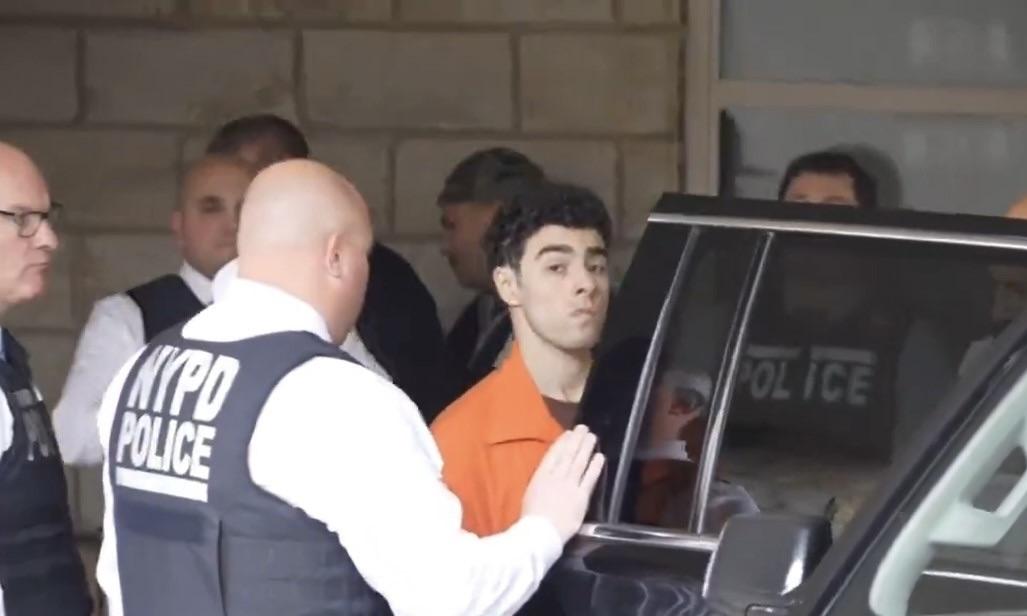The suspect accused of fatally shooting UnitedHealthcare CEO Brian Thompson has been extradited to New York, igniting public outrage over the U.S. healthcare system. Luigi Mangione, 26, was transferred from Pennsylvania on Thursday to face charges of second-degree murder, with authorities labeling the crime an "act of terrorism."
Suspect Agrees to Extradition
Mangione, an Ivy League graduate, initially fought extradition but reversed his decision during a court appearance in Hollidaysburg, Pennsylvania. Wearing an orange prison jumpsuit, he appeared calm as he waived a preliminary hearing on firearms and forgery charges before agreeing to transfer.
Escorted by multiple police vehicles, Mangione was flown to New York, where he was received by a heavy security presence, including officers in tactical gear. His transfer garnered live media coverage, underscoring the case's intense public and media scrutiny.
The charges stem from the December 4 killing of Thompson, who was gunned down on a Manhattan street. Mangione was arrested five days later at a McDonald’s in Altoona, Pennsylvania, following a tip from restaurant staff.
Health Care Frustrations Highlighted
Thompson’s murder has brought longstanding grievances against the U.S. healthcare system into sharp focus. Police revealed that Mangione carried a handwritten, three-page manifesto criticizing health insurance practices at the time of his arrest. Officers also found shell casings at the crime scene inscribed with the words “depose, deny, delay,” mirroring public complaints about tactics used by insurers to deny or postpone coverage.
While police suggested that a severe back injury may have fueled Mangione’s actions, they found no evidence linking him as a client of UnitedHealthcare. Nevertheless, the case has struck a nerve, with many Americans sharing their frustrations with high costs, denied claims, and opaque billing practices.
Public Support and Protests
Mangione’s actions have polarized public opinion, with some viewing him as a misguided symbol of resistance against an allegedly exploitative healthcare system. Outside the Pennsylvania courthouse, protesters rallied with signs reading “Free Luigi” and “Health Insurance Practices Terrorize People!”
The case has also spurred heated debates on social media. Twitter user @JusticeForPatients argued, “Luigi is a symptom of a broken system. Health insurers have terrorized people for years.” Conversely, @AccountabilityNow countered, “Violence is never the answer. We need reform, not murder.”
Others highlighted systemic issues. User @PatientRights shared, “This tragedy underscores why healthcare reform is urgently needed. Patients deserve transparency and fairness.” Meanwhile, @PolicyChange2024 tweeted, “This case is horrifying, but it’s shining a light on practices that harm everyday Americans.”
On the other hand, @InsiderCritic warned, “Lionizing Mangione only distracts from real solutions. Let’s focus on reform, not misplaced heroism.” Finally, @HealthcareTruth added, “Both victims here: one a life lost, another a man driven to desperation. Fix the system now.”
Conclusion
As Mangione awaits trial, the case has sparked a broader conversation about the U.S. healthcare system’s failings. While the criminal proceedings will focus on the act of violence, the underlying frustrations over health insurance practices and medical costs remain a pressing issue for millions of Americans. The trial promises to keep these debates at the forefront of national discourse.



 Federal Judge Rules Trump Administration Unlawfully Halted EV Charger Funding
Federal Judge Rules Trump Administration Unlawfully Halted EV Charger Funding  Newly Released DOJ Epstein Files Expose High-Profile Connections Across Politics and Business
Newly Released DOJ Epstein Files Expose High-Profile Connections Across Politics and Business  Brazil Supreme Court Orders Asset Freeze of Nelson Tanure Amid Banco Master Investigation
Brazil Supreme Court Orders Asset Freeze of Nelson Tanure Amid Banco Master Investigation  Federal Reserve Faces Subpoena Delay Amid Investigation Into Chair Jerome Powell
Federal Reserve Faces Subpoena Delay Amid Investigation Into Chair Jerome Powell  California Sues Trump Administration Over Federal Authority on Sable Offshore Pipelines
California Sues Trump Administration Over Federal Authority on Sable Offshore Pipelines  New York Judge Orders Redrawing of GOP-Held Congressional District
New York Judge Orders Redrawing of GOP-Held Congressional District  U.S. Condemns South Africa’s Expulsion of Israeli Diplomat Amid Rising Diplomatic Tensions
U.S. Condemns South Africa’s Expulsion of Israeli Diplomat Amid Rising Diplomatic Tensions  Federal Judge Blocks Trump Administration Move to End TPS for Haitian Immigrants
Federal Judge Blocks Trump Administration Move to End TPS for Haitian Immigrants  Trump Administration Appeals Judge’s Order Limiting ICE Tactics in Minneapolis
Trump Administration Appeals Judge’s Order Limiting ICE Tactics in Minneapolis  Trump Administration Sued Over Suspension of Critical Hudson River Tunnel Funding
Trump Administration Sued Over Suspension of Critical Hudson River Tunnel Funding  Norway Opens Corruption Probe Into Former PM and Nobel Committee Chair Thorbjoern Jagland Over Epstein Links
Norway Opens Corruption Probe Into Former PM and Nobel Committee Chair Thorbjoern Jagland Over Epstein Links  Citigroup Faces Lawsuit Over Alleged Sexual Harassment by Top Wealth Executive
Citigroup Faces Lawsuit Over Alleged Sexual Harassment by Top Wealth Executive  Panama Supreme Court Voids CK Hutchison Port Concessions, Raising Geopolitical and Trade Concerns
Panama Supreme Court Voids CK Hutchison Port Concessions, Raising Geopolitical and Trade Concerns  Court Allows Expert Testimony Linking Johnson & Johnson Talc Products to Ovarian Cancer
Court Allows Expert Testimony Linking Johnson & Johnson Talc Products to Ovarian Cancer  Minnesota Judge Rejects Bid to Halt Trump Immigration Enforcement in Minneapolis
Minnesota Judge Rejects Bid to Halt Trump Immigration Enforcement in Minneapolis  Google Halts UK YouTube TV Measurement Service After Legal Action
Google Halts UK YouTube TV Measurement Service After Legal Action 































